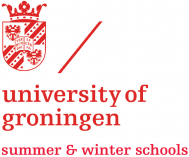12 July 2024
on course website
Developing Across Differences: Applying Neuroscience
Applied Neuroscience and Brain Organisational Neuroscience are new disciplines, made possible only with recent technological innovations that offer scholars and practitioners new approaches for developing across differences.
Why should you attend?
This in-depth course examines how rather than relying on fear-based approaches (ref Hofstede’s statement that “Culture is more often a source of conflict than synergy. Cultural differences are a nuisance at best and often a disaster.”), workplaces and communities can instead apply neuroscience insights and Positive Organisational Scholarship (POS) to pursue personal leadership, inclusion and diversity efforts in order to reap its moral, social, and economic benefits.
Drawing from the emerging field of applied neuroscience and POS, the course provides fundamental, hands-on, and up-to-date knowledge and skill-building that helps you better understand how the brain works and how you can make it work for you—and help your clients do the same.
In being able to more critically reflect on theories and practices that have been the mainstream and see where they can be enriched or debunked with insights from neuroscience, you and those you work with will be able to create and improve workplace policies and strategies on bias management, diversity & inclusion practices, change management, intercultural communication, work-life balance, and personal development.
Course leader
Dr. Mai Nguyen
Target group
The DAD is for multipliers who help individuals, organizations and societies better recognize, appreciate and use differences as a way of better communicating, working and thriving together.
These are (in-house and external) trainers, educators, consultants, coaches, researchers, scholars, facilitators, HR staff, advanced-level (MA+) students, and professional development specialists with 5+ years of experience/study in the greater Differences field. Contact the organisers at ic@rug.nl or info@iddifferences.org for consultation about appropriateness and eligibility.
It is expected that the participants have a sufficient command of the English language to actively participate in the discussions and to present their own work in English.
This course is for you if are a mid- to senior-level in-house professional or consultant/trainer/multiplier/educator who helps those who:
are implementing diversity and inclusion initiatives within their organisations;
offer training and on-the-job professional development to help colleagues better communicate and collaborate;
work with those who appreciate “hard science”-based evidence for making system-wide and personal change.
Contact the organisers at ic@rug.nl or info@iddifferences.org if you have questions about the suitability of this course for your circumstances.
Course aim
In this course, you will learn how to help yourself and those you work with so that you/they can better::
- Critically appreciate neuroscience myths and realities and how the former may be erroneously incorporated into mainstream practices in the workplace and otherwise.
- Articulate the fundamentals of neuroscience, including neuroplasticity, neurogenesis and epigenetics.
- Understand cultural neuroscience connections, i.e. those between culture, cultural values, and acculturalisation with genes and brain using an interdisciplinary approach that fosters the potential of a multicultural mind.
- Understand neuroscience’s role in learning and well-being, including mindfulness, workout, and mind-gut connection.
- Apply insights from neuroscience to understand and work with biases and change management.
Credits info
0.5 EC
18 hours of in-class learning and active participation using experiential methods.
Upon successful completion of the programme, the Summer School offers a Certificate of Attendance that mentions the workload of 18 hours (28 hours corresponds to 1 ECTS). Students can apply for recognition of these credits to the relevant authorities in their home institutions, therefore the final decision on awarding credits is at the discretion of their home institutions. We will be happy to provide any necessary information that might be requested in addition to the certificate of attendance.
Fee info
EUR 1495: includes course and materials, optional evening programming
Register for this courseon course website

